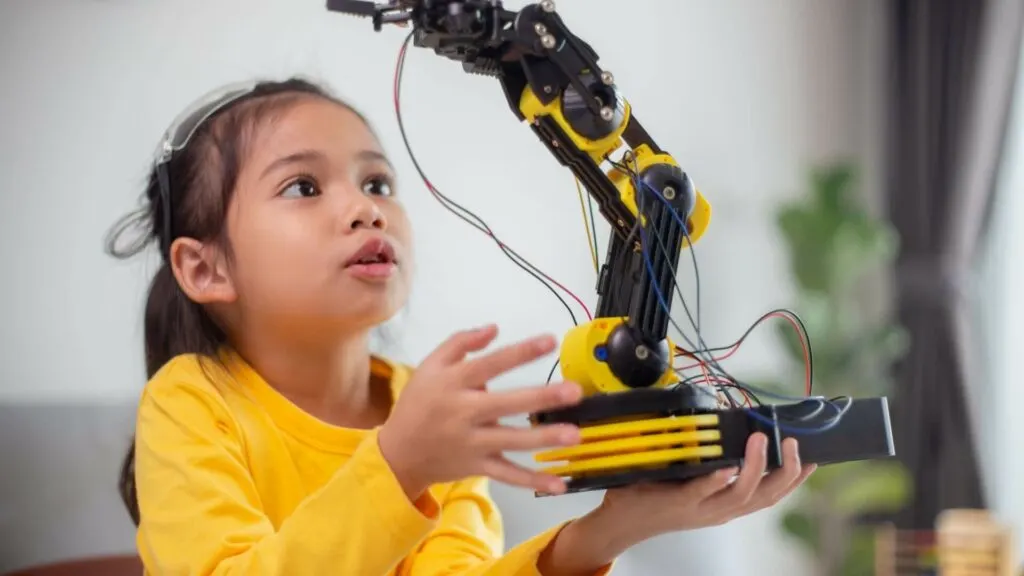In the intricate mosaic of global education, a distinct and compelling narrative is taking shape at the intersection of the International Baccalaureate (IB) framework and the dynamic realm of Science, Technology, Engineering, and Mathematics (STEM) disciplines.
This harmonious blend represents a forward-thinking approach to learning, one that is vividly brought to life within the halls of distinguished institutions such as The Newman School in Massachusetts and The Waldo School in New Jersey. These pillars of educational innovation stand as testaments to the transformative power of combining IB’s comprehensive, inquiry-based educational model with the analytical rigor and practical applications of STEM.
Together, they are charting a new course in academic excellence, proving that the marriage of IB’s holistic philosophy with the concrete, problem-solving essence of STEM subjects results in an educational paradigm that is not only unique but also unmatched in its capacity to prepare students for the complexities of the modern world.

The IB Philosophy: Nurturing Versatile Thinkers
At the core of the IB program’s philosophy is an unwavering commitment to nurturing versatile thinkers—individuals who are equally adept at grappling with the ethical quandaries presented by advancements in artificial intelligence as they are at unraveling the intricacies of advanced calculus. This multidimensional approach to education transcends the traditional boundaries of learning, aiming not solely to impart knowledge but to kindle a passion for inquiry and discovery that persists throughout a student’s life.
The IB program, with its rich global perspective and emphasis on understanding diverse languages and cultures, significantly enhances the study of STEM. It encourages students to delve deeper into the ‘why’ behind the ‘how,’ to question the status quo, and to explore the broader implications of scientific and technological advancements on society and the environment. This holistic approach fosters a learning environment where students are not only informed about global issues but are also motivated to think creatively about solutions, thereby expanding the very definition of what it means to learn and to possess knowledge.
STEM Education: A Grounding in Practicalities
Educational centers like The Newman School and The Waldo School epitomize the successful integration of these educational philosophies. By weaving together the principles of the IB framework with the focused, empirical approach characteristic of STEM disciplines, they offer a curriculum that is as rich and varied as it is rigorous.

Students at these schools benefit from an education that is both comprehensive and deeply interconnected, where learning in science and mathematics is augmented by insights into ethics, history, and the arts. This educational model encourages students to make connections across different areas of study, fostering a type of intellectual agility and breadth of understanding that is rare in more traditional educational settings.
Furthermore, the emphasis on experiential learning and real-world applications ensures that students can see the relevance of their studies beyond the classroom. Projects and investigations that span disciplines allow students to apply their knowledge in tangible ways, addressing actual global challenges such as climate change, sustainable development, and digital privacy. Through such initiatives, students learn to leverage technology and scientific principles responsibly and innovatively, with a keen awareness of their broader impacts on the world.
The Newman School and The Waldo School: Exemplars of Integration
The Newman School and The Waldo School, through their dedication to this integrative educational model, are not just imparting knowledge; they are cultivating a new generation of thinkers, leaders, and innovators. They are preparing students who are not only equipped with the technical skills and intellectual acumen required to excel in STEM fields but also possess the curiosity, empathy, and ethical compass necessary to navigate the complexities of an increasingly interconnected global community. In this way, the fusion of IB and STEM education is more than just a match; it is a blueprint for the future of learning, one that holds the promise of a brighter, more enlightened world.

Meanwhile, STEM education, with its focus on the tangible and the quantifiable, offers a grounding in the practicalities of the world around us. It emphasizes problem-solving, experimentation, and evidence-based reasoning, skills that are increasingly indispensable in a world facing challenges from climate change to cybersecurity. When melded with the IB’s broad-based curriculum and emphasis on intercultural understanding, students receive an education that is both comprehensive and deeply relevant to the needs of the contemporary world.
Schools like The Newman School and The Waldo School stand as exemplars of how this blend can be realized to its fullest potential. Through innovative programming, these institutions offer students opportunities to engage in research projects that might range from developing sustainable engineering solutions to conducting in-depth analyses of genetic data. Here, the application of knowledge transcends the theoretical, encouraging students to engage with the world as thoughtful, informed, and proactive citizens.
IB Core Components and STEM: A Seamless Integration
Moreover, the IB’s core components, including the Theory of Knowledge (TOK), the Extended Essay (EE), and Creativity, Activity, and Service (CAS), integrate seamlessly with STEM education. Through TOK, students are invited to explore the nature of knowledge within the sciences and mathematics, challenging them to question the basis of their understanding. The EE allows for deep, research-based exploration of a topic within the STEM fields, fostering a level of scholarly inquiry that prepares students for the rigors of higher education. CAS, on the other hand, encourages students to apply their scientific knowledge in real-world contexts, promoting a sense of social responsibility and ethical engagement with the world around them.
Impact Beyond the Classroom: A New Generation of Leaders
The impact of combining IB and STEM education extends beyond the classroom and into the broader community. Students from newmanboston.org and waldoschool.com are not only prepared for success in their future academic and professional endeavors but are also equipped with the mindset and skills necessary to tackle some of the most pressing issues of our time. They emerge as leaders, innovators, and changemakers, ready to contribute to a global society with knowledge, compassion, and a commitment to sustainable progress.
IB and STEM Education: A Powerful Combination for Student Success
As the landscape of education continues to shift, the fusion of IB and STEM stands as a testament to the power of comprehensive, interdisciplinary learning. It underscores the importance of educating students who are not only academically adept but also globally aware and ethically minded. In this light, institutions like The Newman School and The Waldo School are not just teaching students; they are preparing the visionaries of tomorrow, proving that indeed, IB and STEM education are a perfect match.

Jessi is the creative mind behind The Coffee Mom, a popular blog that combines parenting advice, travel tips, and a love for all things Disney. As a trusted Disney influencer and passionate storyteller, Jessi’s authentic insights and relatable content resonate with readers worldwide.
